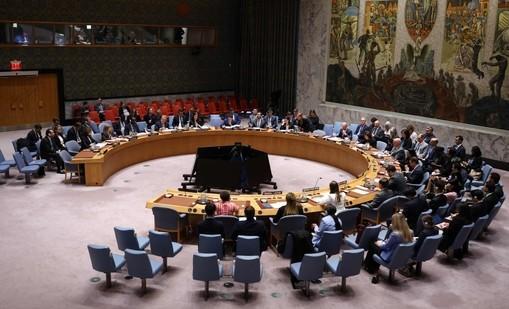
Was LeT Involved? UNSC Asks Pak on J&K Attack, Refuses to Accept ‘False Flag’ Claim
On a recent closed-door meeting in the United Nations Security Council (UNSC), members raised questions on the involvement of Lashkar-e-Taiba (LeT) in the recent Pahalgam attack in Jammu and Kashmir. The meeting was called by Pakistan, which had attempted to paint the attack as a “false flag” operation. However, the UNSC members refused to accept this narrative and instead sought answers on whether the terror outfit based in Pakistan was involved in the attack.
The Pahalgam attack, which took place on October 11, saw a group of terrorists open fire on a tourist bus, killing 7 people and injuring several others. The attack sparked widespread outrage and condemnation, with many calling for action against the perpetrators.
Pakistan, which has a history of supporting terrorist groups, had claimed that the attack was a “false flag” operation designed to discredit the country. However, the UNSC members were not convinced by this narrative and instead raised questions on the involvement of LeT, which is known for its violent activities in the region.
According to reports, some UNSC members brought up the targeting of tourists on the basis of religion, which is a common tactic used by terrorist groups like LeT. The fact that the attack occurred in a popular tourist destination like Pahalgam, which is known for its scenic beauty and religious significance, only adds to the suspicion that the attack was orchestrated by a terrorist group.
The UNSC members’ refusal to accept Pakistan’s “false flag” narrative is a significant development, as it shows that the international community is not buying into the country’s attempts to downplay its role in promoting terrorism in the region. The fact that the UNSC members are asking questions about LeT’s involvement in the attack is also a significant development, as it indicates that they are taking the allegations seriously.
It is worth noting that LeT has a long history of carrying out terrorist attacks in India, including the 2008 Mumbai attacks that killed over 160 people. The group is known for its brutal tactics, including the use of suicide bombers and the targeting of civilians.
Pakistan’s attempts to downplay its role in promoting terrorism in the region are also well-documented. The country has been accused of providing safe haven to terrorist groups like LeT and Jaish-e-Mohammed (JeM), which have carried out numerous attacks in India.
In recent years, Pakistan has made efforts to reform its laws and policies related to terrorism, but many experts believe that the country still has a long way to go in terms of addressing the root causes of terrorism. The fact that Pakistan is still hosting terrorist groups like LeT and JeM is a testament to the country’s continued support for terrorism.
In conclusion, the UNSC’s refusal to accept Pakistan’s “false flag” narrative on the Pahalgam attack is a significant development, as it shows that the international community is not buying into the country’s attempts to downplay its role in promoting terrorism in the region. The fact that the UNSC members are asking questions about LeT’s involvement in the attack is also a significant development, as it indicates that they are taking the allegations seriously.
As the world watches the situation unfold in Jammu and Kashmir, it is clear that the international community will not tolerate any attempts to promote terrorism in the region. The UNSC’s refusal to accept Pakistan’s “false flag” narrative is a clear message to the country that it must take serious action to address the root causes of terrorism and prevent attacks like the Pahalgam attack from happening in the future.



